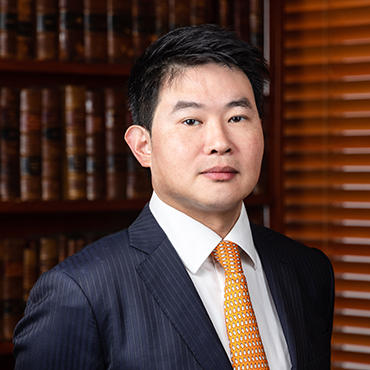Lai Chee Ying v Commissioner of Police (No 2) [2022] 5 HKLRD 617, [2022] HKCFI 3003 (Albert NB Wong)
Albert NB Wong and Samantha Lau represented the plaintiff in Lai Chee Ying v Commissioner of Police (No 2) [2022] 5 HKLRD 617, [2022] HKCFI 3003.
In a search and arrest operation that took place on 10 August 2020, the police seized from P’s residence certain materials, on which P made claims of legal professional privilege (LPP) and journalistic material (JM). P was arrested on the same occasion. A protocol was put in place by the Court for the determination of P’s claims. At the determination pursuant to the protocol, the issues were whether P was able to make good: (i) his LPP claims for communications between him and other parties including lawyers and non-lawyers (made between 24 June 2020 and 9 August 2020) which predated the search and arrest operation, by relying on litigation privilege; and (ii) his JM claims.
Held, dismissing both of P’s claims, directing the police to be at liberty to inspect, extract and/or otherwise access or use for investigation any part of the disputed materials under the LPP claims and the JM claims, that:
- (1) For the LPP claims, P failed to discharge the burden of establishing that litigation was reasonably contemplated when the disputed communications came into existence. The disputed communications were made before the search and arrest operation. Due to the highly confidential nature of the investigation, P could not have been aware of any investigation or possible prosecution against him before the operation. P was unable to adduce objective evidence to substantiate his alleged contemplation of litigation prior to his arrest either. Further, the Law of the People’s Republic of China on Safeguarding National Security in the Hong Kong Special Administrative Region (NSL) was only promulgated on 30 June 2020. Regarding those communications made from 24 June 2020 to 30 June 2020, before NSL’s promulgation, P could not have contemplated any litigation under the NSL. Even after the promulgation of the NSL, it was insufficient for P to assert a mere possibility or general apprehension of future litigation because of general circumstances (such as third parties being arrested), when there was no litigation commenced or threatened against him. The mere fact that legal professionals were involved or retained did not assist P either (USA v Philip Morris Inc [2003] EWHC 3028 (Comm) (HC) and [2004] 1 CLC 811 (CA), Three Rivers District Council v Bank of England (No 6) [2005] 1 AC 610, Westminster International BV v Dornoch Ltd [2009] EWCA Civ 1323, Starbev GP Ltd v Interbrew Central European Holding BV [2013] EWHC 4038 (Comm), Serious Fraud Office v Eurasian Natural Resources Corp Ltd [2019] 1 WLR 791 applied). (See paras.20-27.)
- (2) P also failed to establish that the sole or dominant purpose of the disputed communications were for conducting the litigation. At most, P asserted that those communications “were made with the expectation of confidentiality regarding actions and strategies for this legal battle”; and some of those communications were to brainstorm “how best to protect [P and a team of lawyers and non-lawyers] from an anticipated interference into their constitutional rights by the NSL”, which did not equate to the conduct of litigation. P’s reliance on the Lyell exception was also rejected. There was no evidence that any compilation or selection exercise of materials by P’s lawyers was carried out, and the fact that some instant messages were sent or forwarded to P’s lawyers could not turn a non-privileged original document into privileged material (Three Rivers District Council v Bank of England (No 6) [2005] 1 AC 610, Wong Wai Keung v Commissioner of Police [2022] HKCFI 374 applied; Lyell v Kennedy (No 3) (1884) 27 Ch D 1 considered). (See paras.28-34.)
- (3) P also failed to make good his JM claims. He was only able to supply generic, self-serving, one-line circular descriptions of the alleged JM. There was no information on the circumstances in which the relevant materials were created or the nature of the publication (whether they were local news, commentaries or commercial advertisements, etc.). The question was whether the materials were in fact JM. P’s evidence, at best, only provided the factual background to why there would be objective suspicion of P being in possession of JM and did not contain particulars or factual context of the disputed JM materials in question. The mere fact that the material was in possession of a journalist was not determinative of its nature, nor was the form in which the material was published (A v Commissioner of Police [2021] 3 HKLRD 300 applied). (See paras.35-42.)
[The above is excerpted from the headnote to the report in HKLRD.]


